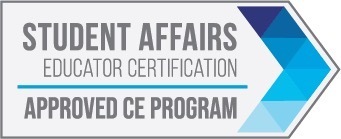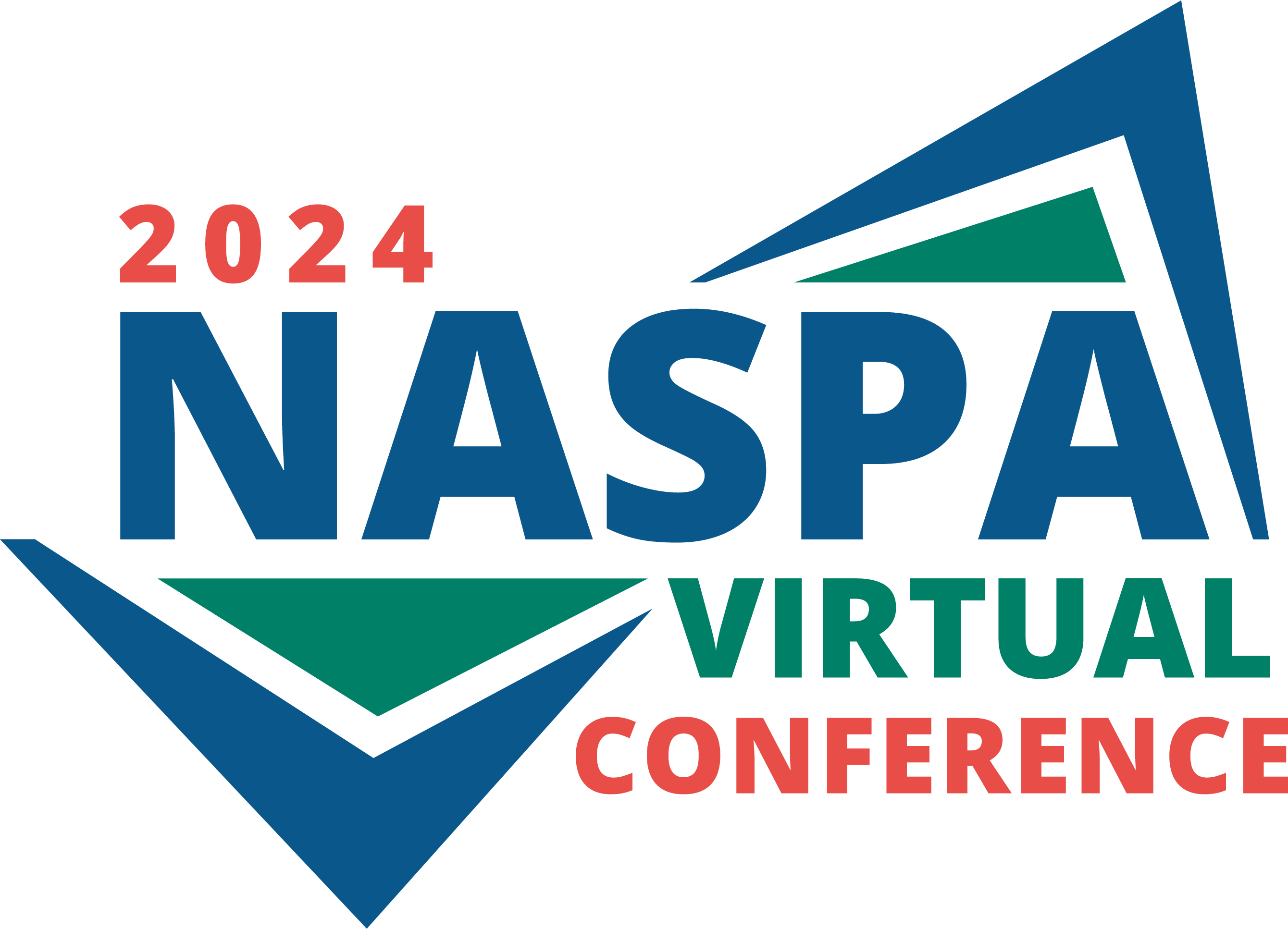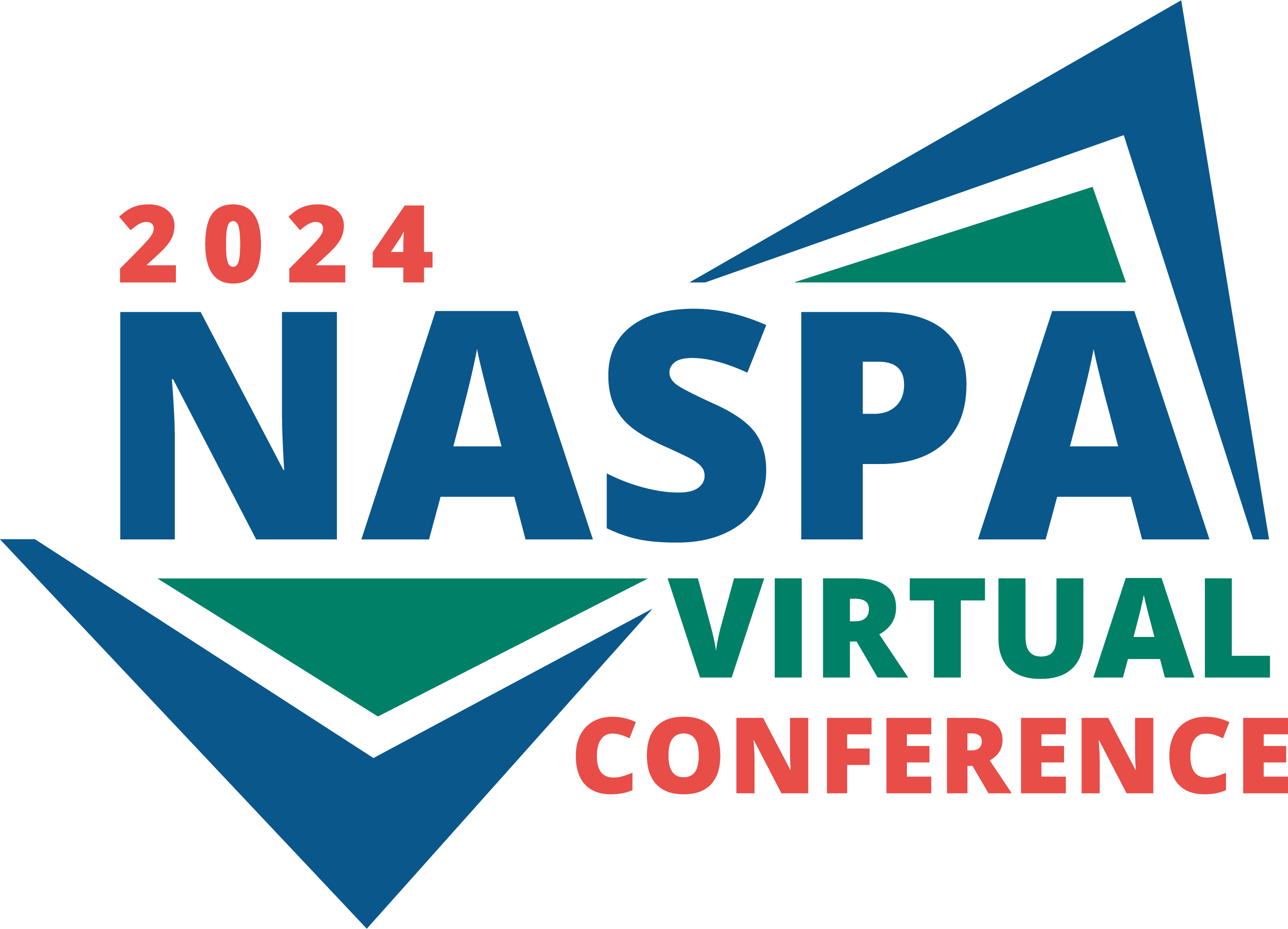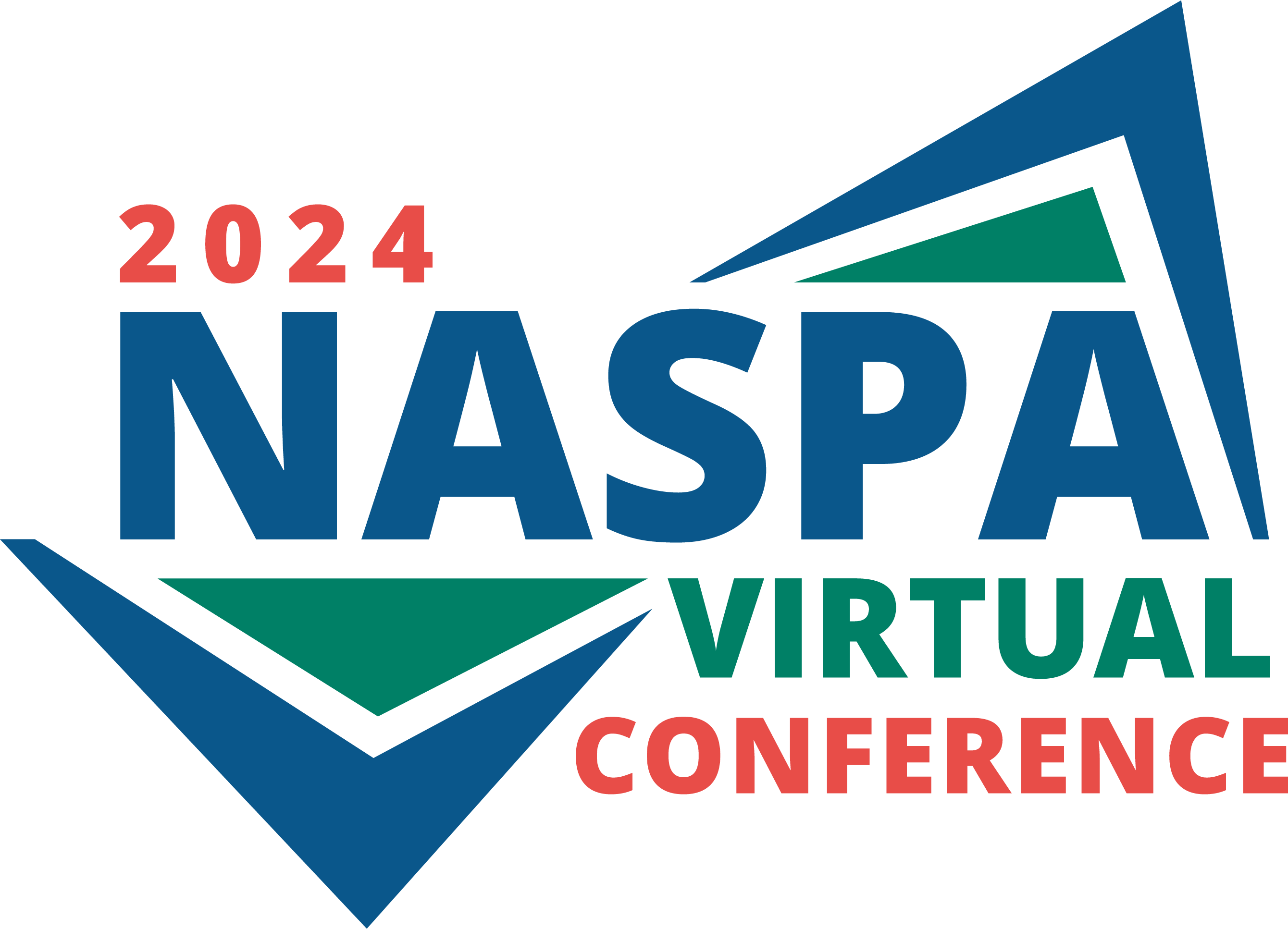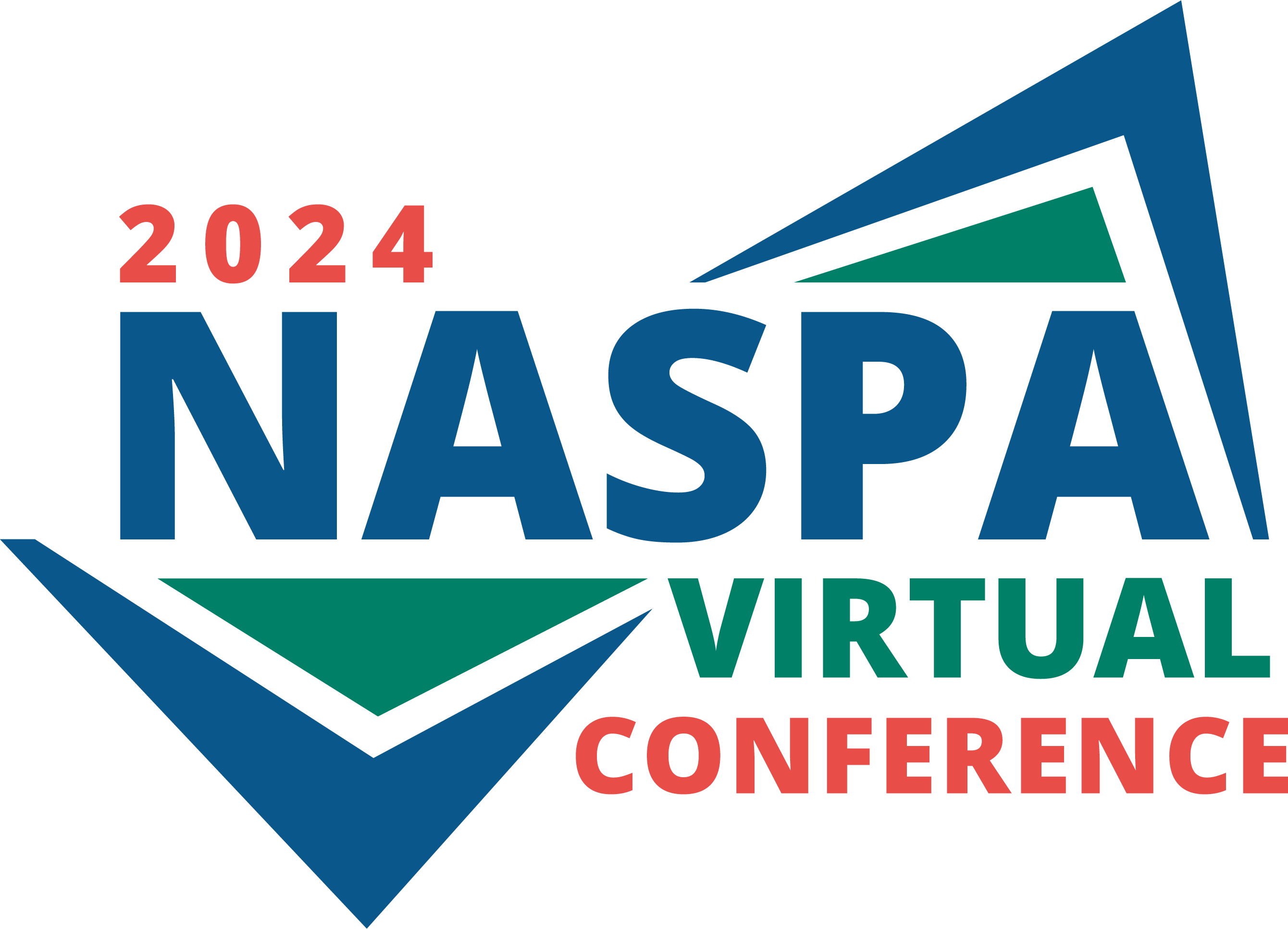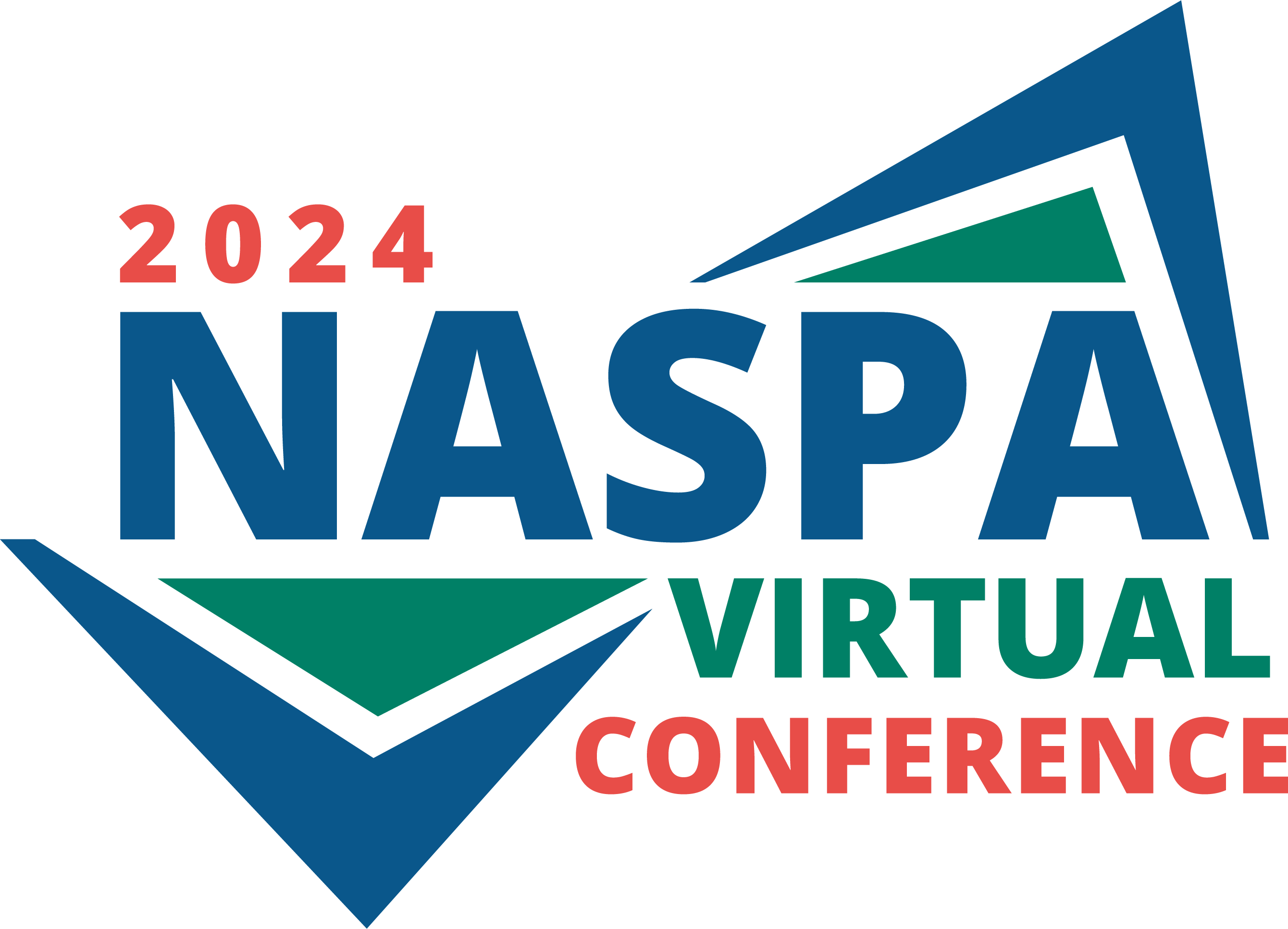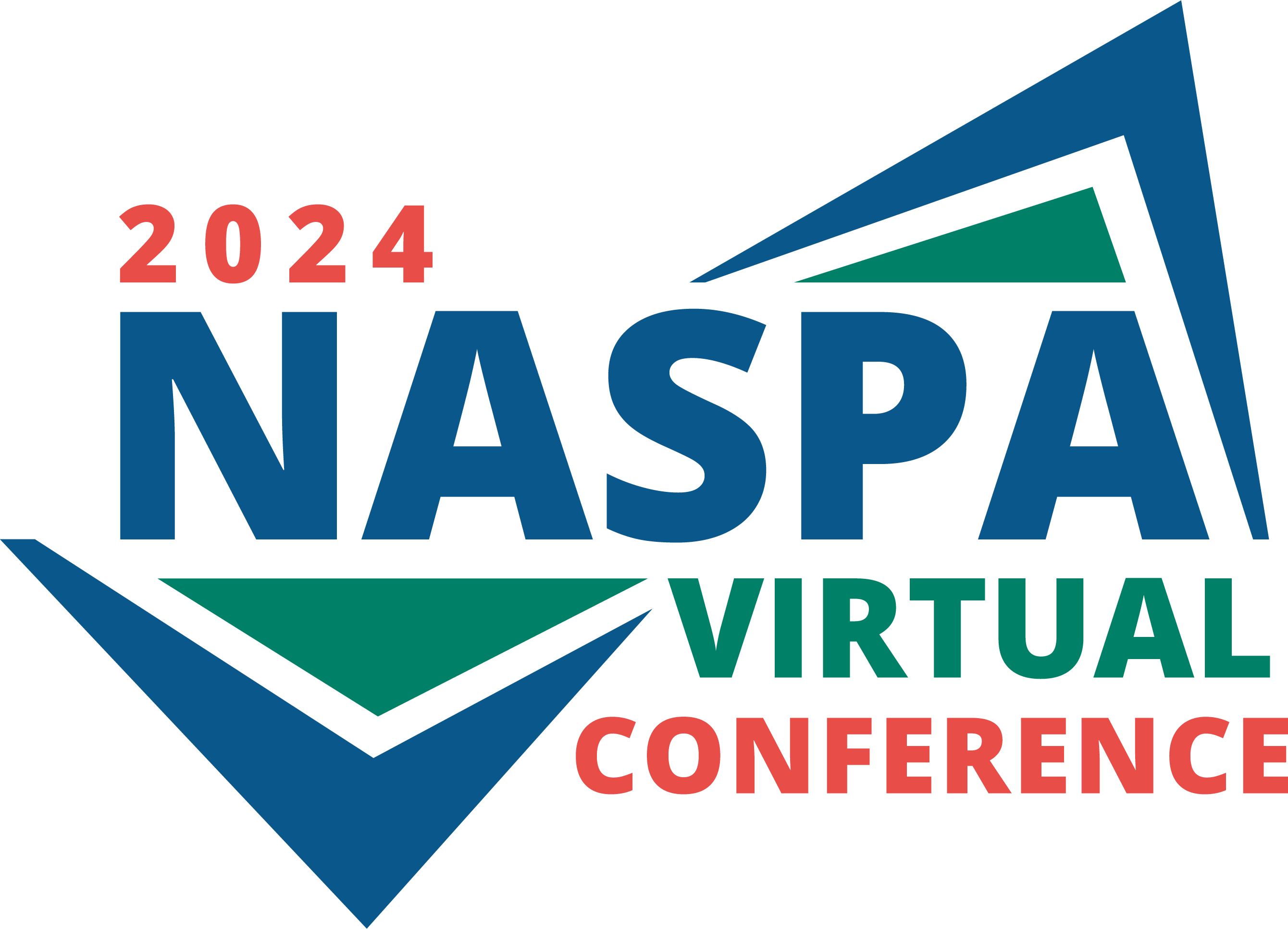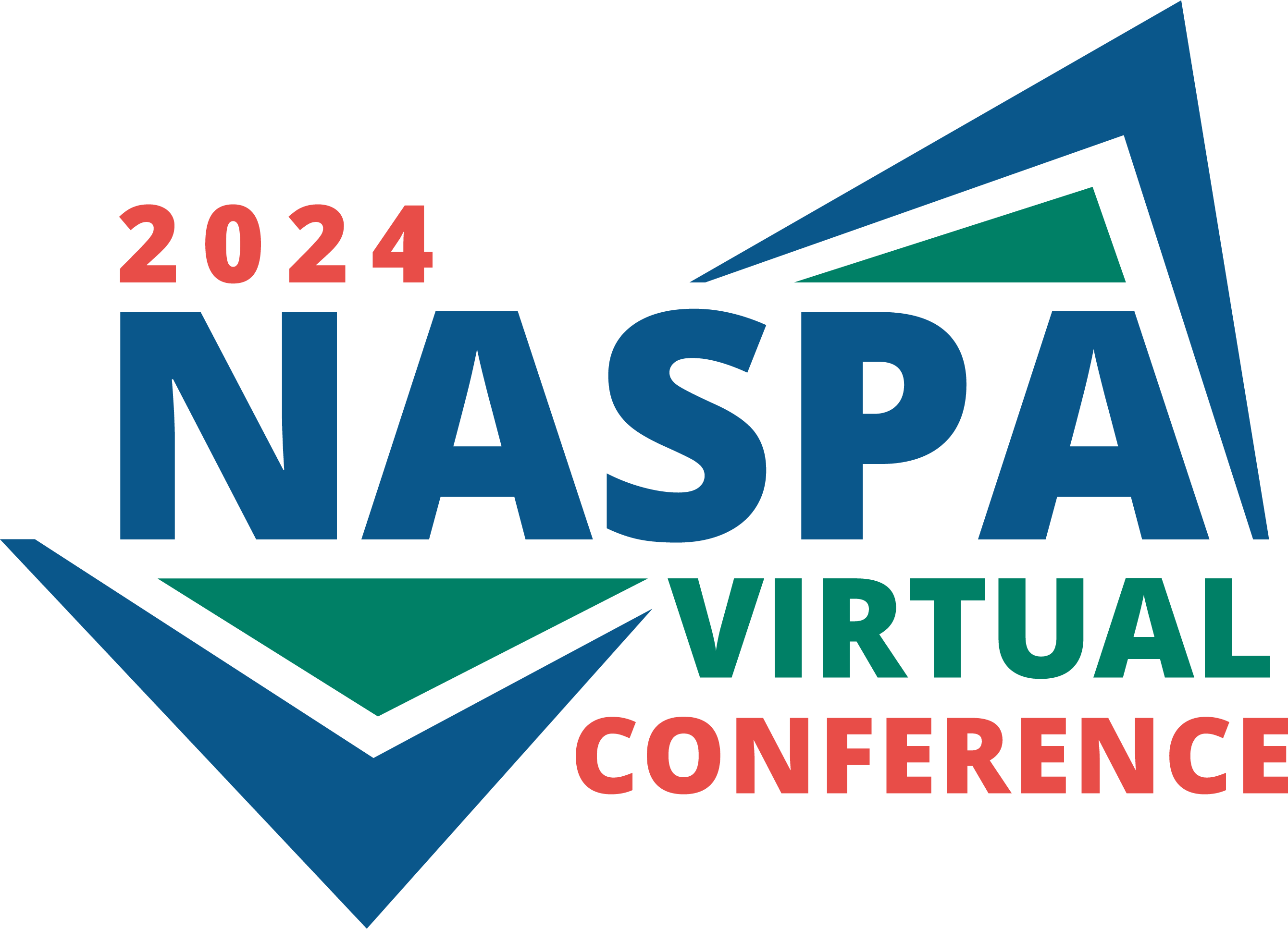
90-Minute Extended Domain 2024 Virtual Conference Package
-
You must log in to register
- Non-member - $349
- Member - $149
The 2024 NASPA Virtual Conference 90-Minute Extended Session Bundle offers an exclusive opportunity to access all eight invited, extended sessions on-demand or at a low cost. Each webinar is 90 minutes long and designed to deliver in-depth insights on key topics relevant to student affairs and higher education professionals focused on the Student Affairs Educator Certification Domains. Each sessionsDomainsAffairs is 90 minutes long and designed to deliver in-depth insights on key topics relevant to student affairs and higher education professionals focused on the Student Affairs Certification Domains.
The package includes sessions led by expert speakers and practitioners, covering a variety of themes such as leadership, social justice and inclusion, student development and learning, talent management, crisis management, assessment and evaluation, foundations of the profession, and fiscal and facility management.
Session Bundle Pricing:
Member: $149 ($1192 value)
Non-member: $349 ($1992 value)
All session are available to view for 365 days from registration.
-
Contains 3 Component(s)
During moments of crisis caused by racism, many leaders - who oftentimes hold privileged and oppressor identities - face competing pressures to condemn racism and reiterate institutional values to create an inclusive community while continuing to please their donors who may disagree with addressing racism. Participants will learn strategies and tactics to move institutions away from racism and toward anti-racism, including a shift in racist policies, practices, pedagogies, and people.
During moments of crisis caused by racism, many leaders - who oftentimes hold privileged and oppressor identities - face competing pressures to condemn racism and reiterate institutional values to create an inclusive community while continuing to please their donors who may disagree with addressing racism. Participants will learn strategies and tactics to move institutions away from racism and toward anti-racism, including a shift in racist policies, practices, pedagogies, and people.

Jordan Shelby West
Associate Vice Provost for Diversity, Equity and Community Engagement
George Washington University
Jordan Shelby West, PhD (she/her) is currently the Associate Vice Provost for Diversity, Equity and Community Engagement at The George Washington University (GW). Prior to serving in this capacity, Dr. West was the Inaugural Director of University Diversity & Inclusion Programs at GW. In her university-wide role, Dr. West is responsible for creating and implementing strategy, vision, and educational opportunities across the institution that inform people, policies, and practices in order to continue shifting the campus towards a more positive and just climate. In her work, Dr. West leads boldly and with an imagination rooted in the audacity to hope. Dr. West prioritizes truth-telling, amplifying voices and experiences often excluded, and leading from an intersectional framework. After working with Dr. West, most people express a deep sense of urgency and responsibility to do what they can from where they are in order to create sustainable change. In addition to her university leadership role, Dr. West has a faculty appointment in Women, Gender & Sexuality Studies and teaches undergraduate and graduate courses on Black Feminist Theory.
Dr. West identifies as a scholar-activist and is a formally trained social justice and anti-racist educator and facilitator. Prior to joining GW, Dr. West was the Inaugural Senior Diversity & Inclusion Training Specialist at Princeton University, where she created an 18-month Certificate Program called the Inclusion & Diversity Certificate Program (I&DCP) for cohorts of staff and faculty, in addition to leading, designing, and facilitating several opportunities for various departments across the campus. Before joining Princeton, Dr. West worked in the Division of Student Affairs at Syracuse University and directed a dialogue program entitled Conversations About Race & Ethnicity (C.A.R.E.). Dr. West’s experience in higher education also includes working at institutions such as the University of California Berkeley and Pennsylvania State University and in areas such as Residence Life, Greek Life, Multicultural Affairs, Admissions, Athletics, and more.
On a national level, Dr. West serves as a consultant to institutions of higher education and organizations committed to equity and anti-racism. Dr. West works with leaders to develop strategy and long-term efforts grounded in values of diversity, inclusion, equity, justice, and anti-racism at all points. As a consultant, Dr. West works with organizations to develop and facilitate educational opportunities that engage individuals in meaningful, critical, and urgent work about identity, systems of power, privilege, and oppression, and our individual and collective roles in taking action to disrupt inequitable structures. Dr. West is also works with institutions of higher education across the United States to conduct campus climate assessments and has been doing so since 2010. Dr. West is actively involved with higher education organizations, including the National Association of Diversity Officers in Higher Education (NADOHE), NASPA, and the American College Personnel Association (ACPA). Within ACPA, Dr. West serves as an Equity & Inclusion Advisory Board member, Past Chair for the Pan African Network (PAN), and the former Assembly Coordinator for Coalitions & Networks on the Association’s Governing Board.
Dr. West completed her PhD in Cultural Foundations of Education and received her Certificate of Advanced Studies in Women and Gender Studies at Syracuse University. Dr. West earned her Master’s degree in College Student Affairs, emphasizing social justice in higher education at The Pennsylvania State University. Dr. West received her bachelor’s degree in psychology from the University of Maryland College Park and is a proud Terp! Dr. West’s experience and continued research interests focus on campus climate, narrative and storytelling as a method, restoration and healing, sister circles, and how People of Color and individuals from historically marginalized identities work towards liberation while in higher education through the lens of Black Feminist Theory and Critical Race Theory.
CSAEd Credit
Session Credit Eligibility: 1.5 CSAEd-CORE credit or 1.5 CSAEd-SJI credit
To receive CSAEd credit, attendees must complete the feedback survey that offers the certification in each session. Once you have attended all the live sessions or watched the on-demand sessions for which you would like to request credit, visit the Continuing Education (CE) website to fill out the Student Affairs Education Certification Request Form for all the sessions.
All certificants must fill out one for the live session and a separate one for the on-demand sessions.
Visit the Continued Education (CE) website to learn more regarding deadlines and receive your certificate of completion for the Virtual Conference.
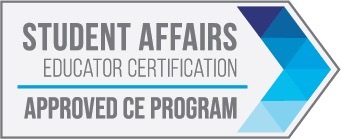
-
Contains 3 Component(s)
President Emeritus, Timothy A Alvarez, Ph.D. will offer strategies for having crucial conversations with staff. With over 34 years of experience in Student Affairs and Presidential leadership roles in community colleges, Dr. Alvarez will share insight on having crucial and sometimes challenging conversations in the workplace, while demonstrating compassion and grace.
Since COVID forced us to work virtually and remotely, it magnified the feeling of disconnection, which created a more significant sense of loneliness. Further, it exposed weaknesses in our systems and strain on interpersonal relationships. Interpersonal conflict is inevitable in the workplace, and now that we are returning to more face-to-face interactions, conflict can also be the most challenging part of a leader’s responsibilities and can translate into poor performance and, worse, employee turnover.
Learn how avoiding difficult conversations can create a divisive work environment and pit staff against each other. If we shift our mindset toward honest, deliberated, and compassionate interactions, there is hope to develop a more civil and caring work environment. Dr. Alvarez will offer practical approaches derived from such authors as Marcus Buckingham, Taya Cohen, Brene Brown, Daniel Pink, Malcolm Gladwell, and Claude Steele.
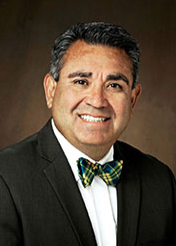
Dr. Timothy Alvarez
President Emeritus
Otero College
Dr. Timothy Alvarez recently retired as President Emeritus from Otero College, where he served as only the 5th president. He was relentlessly focused on student engagement, minimizing systematic barriers, equity and inclusion, undergraduate research, career readiness, and mentoring. Professionally, Dr. Alvarez provided leadership to the National Association of Student Affairs Professionals (NASPA), the Association of Land Grant Universities (APLU), and the broader community. Within NASPA, he has been a regional director, NUFP regional coordinator, state membership coordinator, regional membership coordinator, conference program co-chair, case study judge, program reviewer, and board member for the James Scott Academy.
Dr. Alvarez also enjoys community involvement, as evidenced by his recent participation in the El Pomar Foundation, the Koshare Museum Board of Directors, the La Junta School District Advisory Council, and the La Junta Main Street Board.
Dr. Alvarez has been married to Lori for thirty-eight years. They have three grown children, Joshua, Jason, and Tiffany, and 5 grandsons under the age of 4.
Continuing Education Credits
NASPA has been approved by the Higher Education Consortium for Student Affairs Certification to provide CE credit for Certified Student Affairs Educators (CSAEd). NASPA is solely responsible for all aspects of this program.
Participants who view this session will be eligible for Continuing Education (CE) credits in the Core Student Affairs Educator Certification (CSAEd™) continuing education.
Guidelines for earning CE credit:
1.5 CE is awarded for attending this live session OR watching it on-demand for ONE category of Continuing Education. You can not receive more than 1.5 credit hours total.
No partial credit will be rewarded.
Participants must also complete the feedback survey in the Online Learning Community.
Reach out to virtuallearning@naspa.org for the continuing education certificate for Social Justice and Inclusion.
To receive CSAEd credit, attendees must complete the Feedback Survey in the online event offering the certification. Once the survey is completed, your Certificate of Completion will be available in the event modules. The Certificate of Completion, which will show the event and credit earnings, is available for download and/or print from the event in your Online Learning Community.
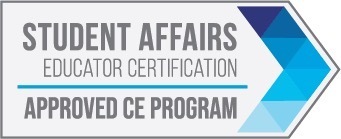
-
Contains 4 Component(s)
The question is not if but when. College campuses are facing crises at an alarming rate. Student affairs professionals are integral parts of the campus crisis response team. This course will give a broad overview of how student affairs professionals can establish relationships, both internal to the institution and external, to best support their students and campus during crisis situations.
The question is not if but when. College campuses are facing crises at an alarming rate. Student affairs professionals are integral parts of the campus crisis response team. This course will give a broad overview of how student affairs professionals can establish relationships, both internal to the institution and external, to best support their students and campus during crisis situations.
Learning Outcomes:
- Identify individual positions and departments (internal and external) critical to a holistic all-campus approach to emergency preparedness at their institution.
- Identify key terms used in higher education emergency management.
- Contribute to a comprehensive emergency management plan to implement on their campus or program.
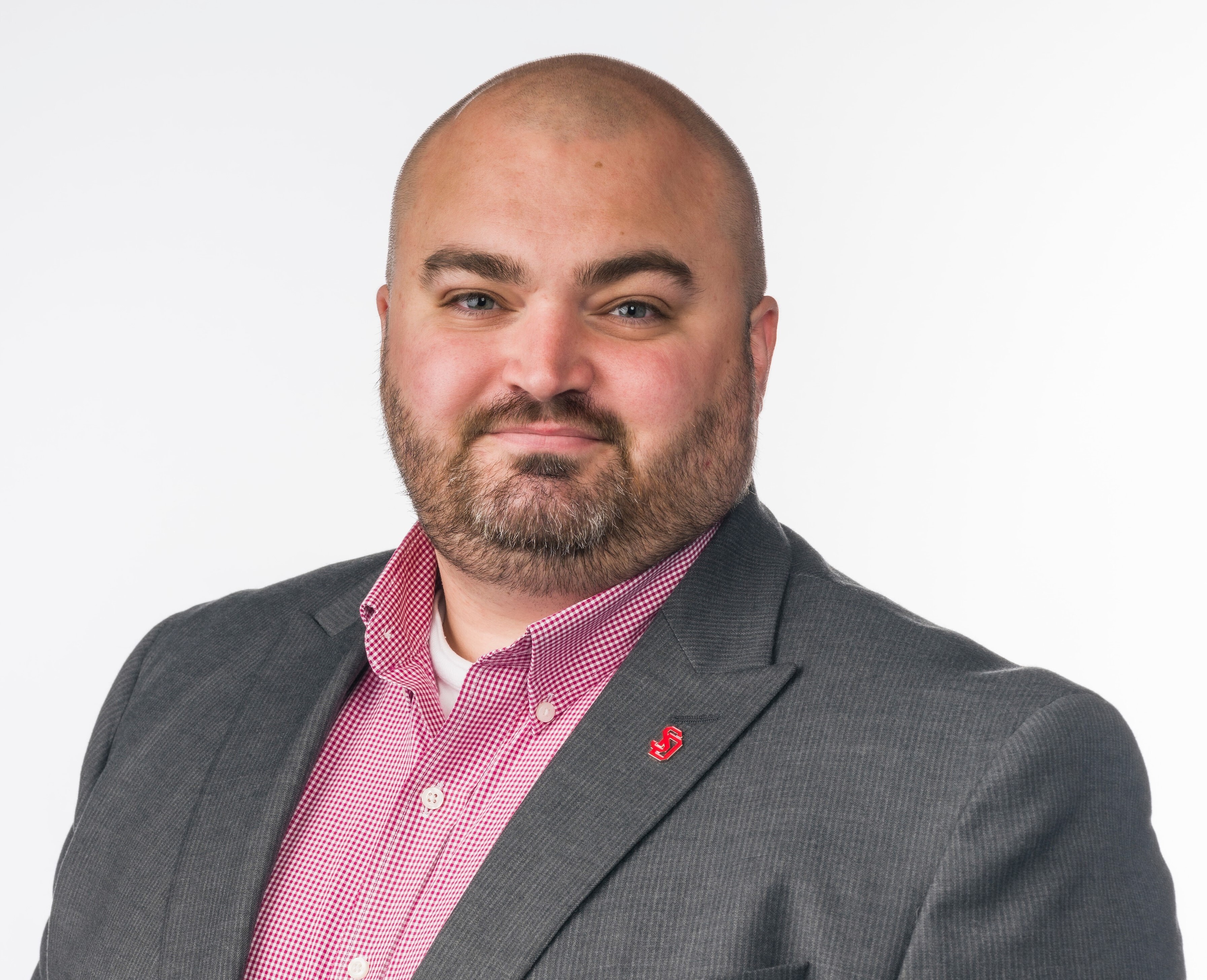
Bryant Jackson, Ed.D.
Chief of Police
University of South Dakota
Bryant Jackson, Ed.D., serves as the Chief of Police at the University of South Dakota and as an adjunct graduate faculty member in the University of South Dakota educational leadership program. He graduated from the Federal Bureau of Investigations National Command Course cohort #4 and the Northwestern School of Police Staff and Command. Before entering law enforcement, Dr. Jackson served in the US Marine Corps. He has completed an undergraduate degree in transportation and logistics management, a graduate degree in emergency and disaster management, and a Doctor of Education degree in adult and higher education leadership. Dr. Jackson is involved in several organizations including serving as the Mid-America Regional Director for the International Association of Campus Law Enforcement Administrators.
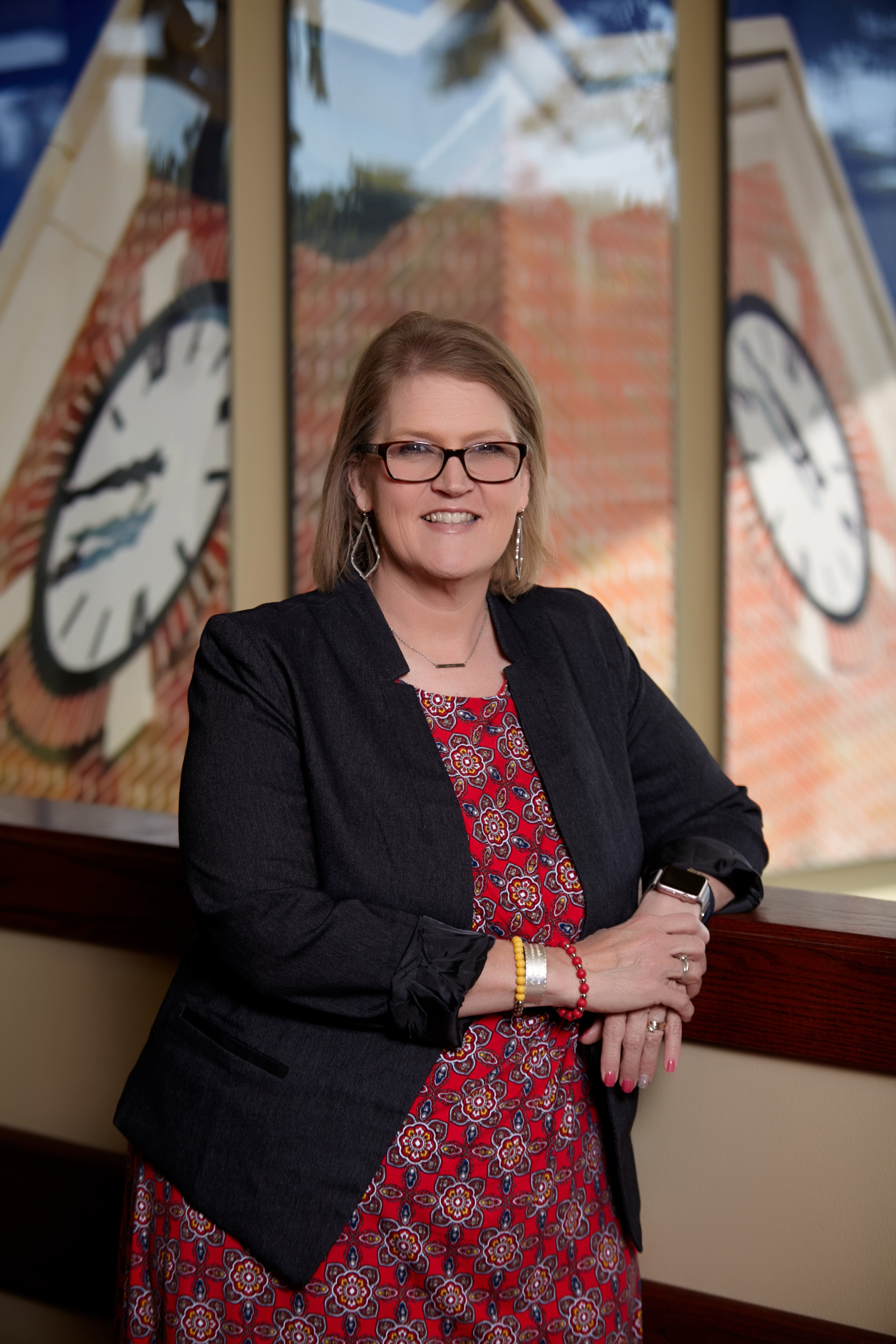
Cindi Albrightson, M. Ed.
Title IX & Compliance Coordinator, Campus Safety Advisor
Southwestern Oklahoma State University
Cindi Albrightson, M. Ed. serves as the Title IX & Compliance Coordinator and Campus Safety Advisor for Southwestern Oklahoma State University (SWOSU). She previously served as an Instructor and Interim Chair of the Department of Engineering Technology, teaching Safety and Environmental Regulations courses. Cindi serves on the Custer County Local Emergency Planning Committee and the Custer County Full Scale Emergency Response Team. She has experience with OSHA, PEOSH, EPA, and ADA. Cindi completed her undergraduate degree in Industrial Technology with a specialization in Industrial Supervision and her graduate degree in Education at SWOSU.
Continuing Education Credits
NASPA has been approved by the Higher Education Consortium for Student Affairs Certification to provide CE credit for Certified Student Affairs Educators (CSAEd). NASPA is solely responsible for all aspects of this program.
Participants who view this session will be eligible for Continuing Education (CE) credits in the Core Student Affairs Educator Certification (CSAEd™) continuing education.
Guidelines for earning CE credit:
1.5 CE is awarded for attending this live session OR watching it on-demand for ONE category of Continuing Education. You can not receive more than 1.5 credit hours total.
No partial credit will be rewarded.
Participants must also complete the feedback survey in the Online Learning Community.
Reach out to virtuallearning@naspa.org for the continuing education certificate for Social Justice and Inclusion.
To receive CSAEd credit, attendees must complete the Feedback Survey in the online event offering the certification. Once the survey is completed, your Certificate of Completion will be available in the event modules. The Certificate of Completion, which will show the event and credit earnings, is available for download and/or print from the event in your Online Learning Community.

-
Contains 3 Component(s)
Advising student government and student organizations involves many skills beyond group development. These include managing finances, risks, human resources, relations with the University, facilities management, and shared services. Join us as we delve into the financial and facility skills of effective advising.
Advising student government and student organizations involves many skills beyond group development. These include managing finances, risks, human resources, relations with the University, facilities management, and shared services. Join us as we delve into the financial and facility skills of effective advising.
Learning Outcomes:
Understand fiscal management for student government.
Explore contractual relationships that can exist between a student government and a University.
Articulate how to navigate shared services and effectively include student organizations.

bill harcleroad, MSEd, CSAEd, CSAEd-CA, CSAEd-CU
Director of Campus Activities & Leadership
SUNY Oneonta
bill harcleroad is a lifelong activities professional who began his career at the University of Rochester, his alma mater, and now works at SUNY Oneonta where he has worked for more than 18 years as Director of Campus Activities and Leadership. He has both a bachelor’s in psychology and a Master’s in Curriculum Development from Rochester. He is a lifelong learner who has recently earned a badge in Inclusive and Ethical Leadership from the University of South Florida as well as has completed multiple Lumen Fellowships including, most recently, Belonging and Inclusive Teaching. He is an avid listener of podcasts, which serve as great education and inspirational tools for him. Lastly, he is most proud of raising an amazing human being who has recently transferred to SUNY Oneonta.
Continuing Education Credits
NASPA has been approved by the Higher Education Consortium for Student Affairs Certification to provide CE credit for Certified Student Affairs Educators (CSAEd). NASPA is solely responsible for all aspects of this program.
Participants who view this session will be eligible for Continuing Education (CE) credits in the Core Student Affairs Educator Certification (CSAEd™) continuing education.
Guidelines for earning CE credit:
1.5 CE is awarded for attending this live session OR watching it on-demand for ONE category of Continuing Education. You can not receive more than 1.5 credit hours total.
No partial credit will be rewarded.
Participants must also complete the feedback survey in the Online Learning Community.
Reach out to virtuallearning@naspa.org for the continuing education certificate for Social Justice and Inclusion.
To receive CSAEd credit, attendees must complete the Feedback Survey in the online event offering the certification. Once the survey is completed, your Certificate of Completion will be available in the event modules. The Certificate of Completion, which will show the event and credit earnings, is available for download and/or print from the event in your Online Learning Community.

-
Contains 3 Component(s)
Health Promotion and Health Behavior theories and models can be accessible, concrete, and sometimes fun (Seriously!) This session will invite participants to learn some of the “greatest hits” of Health Promotion and Health Behavior theories to help fill the existing evidence-based practice gaps in student well-being work on their campus. Participants will have the opportunity to generate ideas for how to connect these theories to existing practice, identify potential harms and hazards, and consider how to center students who have traditionally been decentered in this work.
Health Promotion and Health Behavior theories and models can be accessible, concrete, and sometimes fun (Seriously!) This session will invite participants to learn some of the “greatest hits” of Health Promotion and Health Behavior theories to help fill the existing evidence-based practice gaps in student well-being work on their campus. Participants will have the opportunity to generate ideas for how to connect these theories to existing practice, identify potential harms and hazards, and consider how to center students who have traditionally been decentered in this work. Participants will be invited to co-create learning with each theory shared; this session seeks to enhance participants’ curiosity about one or more models to learn more. References will be shared with participants so they can take a deeper dive at the level at which they choose.
Learning Outcomes:
- Identify up to three accessible health promotion/health behavior theories that can be applied to improve the efficacy of student well-being work on campus.
- Examine their current campus efforts for potential unintended harmful side effects such as reactance, message rejection, furthering racism, victim-blaming, and/or erasure.
- Apply *one* theory to *one* existing or future part of student well-being work on their home campus.

Jennifer Jacobsen
Executive Director of Health & Wellness
Macalester College
Jen Jacobsen, MA MPH, serves as the executive director of Health & Wellness at Macalester College; previously, she was director of Health Promotion and Sexual Respect. Prior to this, she was the Director of Wellness & Prevention and deputy Title IX coordinator at Grinnell College for over a decade. Jen has participated in the NCAA Step UP! advisory board, The NCAA Sexual Assault Task Force, the NCAA Division III Alcohol and Other Drug advisory group, the ACHA Campus Safety and Violence Coalition, and currently serves on NASPA’s Culture of Respect, the NIAAA College Working Group, and the NCCHA Executive Board. Jen’s primary areas of research and practice include active bystanderism, the role of alcohol in both sex and sexual assault, mental health promotion, the intersection of student affairs and athletics, and leveraging a public health approach to work on college campuses. She is currently pursuing a doctor of philosophy with concentrations in implementation science and adolescent & emerging adult behavioral health.
Continuing Education Credits
NASPA has been approved by the Higher Education Consortium for Student Affairs Certification to provide CE credit for Certified Student Affairs Educators (CSAEd). NASPA is solely responsible for all aspects of this program.
Participants who view this session will be eligible for Continuing Education (CE) credits in the Core Student Affairs Educator Certification (CSAEd™) continuing education.
Guidelines for earning CE credit:
1.5 CE is awarded for attending this live session OR watching it on-demand for ONE category of Continuing Education. You can not receive more than 1.5 credit hours total.
No partial credit will be rewarded.
Participants must also complete the feedback survey in the Online Learning Community.
Reach out to virtuallearning@naspa.org for the continuing education certificate for Social Justice and Inclusion.
To receive CSAEd credit, attendees must complete the feedback survey that offers the certification in each session. Once you have attended all the live sessions or watched the on-demand sessions for which you would like to request credit, visit the Continuing Education (CE) website to fill out the Student Affairs Education Certification Request Form for all the sessions. All certificants must fill out one for the live session and a separate one for the on-demand sessions.
Visit the Continued Education (CE) website to learn more regarding deadlines and receive your certificate of completion for the Virtual Conference.

-
Contains 4 Component(s)
In an attempt to foster an environment that cultivates inclusion and maintains free speech, institutions of higher learning have encountered formidable challenges. These challenges often result in tense moments and conflicts in and out of the classroom. Many believe that fostering a culture of inclusion and belonging on college campuses has the potential to curtail freedom of expression. In the long run, this lack of understanding can erode the public trust in higher education. While there is no single solution, having strategies available that universities can choose from can help to harmonize the principles of inclusion and free speech. In response to these challenges, PEN America has created the CASE framework, a structured approach for responding to campus tensions involving free speech and inclusion. It outlines challenges, reflection questions, and strategies that enable campus leaders to have a holistic response to campus incidents where free speech and inclusion might be at odds.
In an attempt to foster an environment that cultivates inclusion and maintains free speech, institutions of higher learning have encountered formidable challenges. These challenges often result in tense moments and conflicts in and out of the classroom. Many believe that fostering a culture of inclusion and belonging on college campuses has the potential to curtail freedom of expression. In the long run, this lack of understanding can erode the public trust in higher education. While there is no single solution, having strategies available that universities can choose from can help to harmonize the principles of inclusion and free speech. In response to these challenges, PEN America has created the CASE framework, a structured approach for responding to campus tensions involving free speech and inclusion. It outlines challenges, reflection questions, and strategies that enable campus leaders to have a holistic response to campus incidents where free speech and inclusion might be at odds.
Learning Outcomes:
- Understand and articulate the components of the CASE framework and its application on campus free speech and inclusion.
- Identify a systematic and organized approach to responding to campus tensions.
- Employ guidance and direction for designing educational programs and professional development opportunities focused on responding to campus tensions.

Kristen Shahverdian
Senior Manager, Free Expression & Education
PEN America
Kristen Shahverdian is the senior program manager of free expression and education at PEN America, developing campus engagements and public events related to free expression and education. After a decade in dance and choreography, she began researching best practices for participatory art projects and how to teach art that depicts violence and traumatic events. She previously served as a project manager for the Philadelphia Folklore Project, and facilitated workshops on trauma and art at the College Art Association and Dance Studies Association. She is also a writer and editor at the online dance journal thINKingDANCE.
Before joining PEN America, she was a senior lecturer at the University of the Arts in Philadelphia and previously was an adjunct professor at Rowan University and Temple University. She received her BA in history and dance from Hamilton College, her MFA in dance from Temple University, and her MA in socially engaged art from Moore College of Art & Design.
Continuing Education Credits
NASPA has been approved by the Higher Education Consortium for Student Affairs Certification to provide CE credit for Certified Student Affairs Educators (CSAEd). NASPA is solely responsible for all aspects of this program.
Participants who view this session will be eligible for Continuing Education (CE) credits in the Core Student Affairs Educator Certification (CSAEd™) continuing education.
Guidelines for earning CE credit:
1.5 CE is awarded for attending this live session OR watching it on-demand for ONE category of Continuing Education. You can not receive more than 1.5 credit hour total.
No partial credit will be rewarded.
Participants must also complete the feedback survey in the Online Learning Community.
Reach out to virtuallearning@naspa.org for the continuing education certificate for Social Justice and Inclusion.
To receive CSAEd credit, attendees must complete the feedback survey that offers the certification in each session. Once you have attended all the live sessions or watched the on-demand sessions for which you would like to request credit, visit the Continuing Education (CE) website to fill out the Student Affairs Education Certification Request Form for all the sessions. All certificants must fill out one for the live session and a separate one for the on-demand sessions.
Visit the Continued Education (CE) website to learn more regarding -
Contains 2 Component(s)
Competency development is essential for students as they prepare for a successful transition from college to career. As students experience college, they are able to hone competencies that have real-life implications. Recent NACE data point to employers hiring decisions emphasizing competency proficiency, more so than GPA when considering who to hire. Now, more than ever before, colleges and universities are integrating competencies into the fabric of their student experiences by infusing intentional competency-based student learning into the curriculum and co-curriculum—all with the goal of fostering student success and career readiness.
Competency development is essential for students as they prepare for a successful transition from college to career. As students experience college, they are able to hone competencies that have real-life implications. Recent NACE data point to employers hiring decisions emphasizing competency proficiency, more so than GPA when considering who to hire. Now, more than ever before, colleges and universities are integrating competencies into the fabric of their student experiences by infusing intentional competency-based student learning into the curriculum and co-curriculum—all with the goal of fostering student success and career readiness.
Join us as association leaders discuss the impact competency implementation has on institutional effectiveness and student preparedness, the importance of competency implementation across the higher education community, opportunities for collaboration between academic and student affairs, and strategies and leading practices with institutions to establish new and enhance existing competency initiatives.
Learning Outcomes:
- Understand the impact of competency implementation on institutional effectiveness and student preparedness.
- Socialize the importance of competency implementation across the higher education community.
- Share strategies and leading practices with institutions to establish new and enhance existing implementation initiatives.
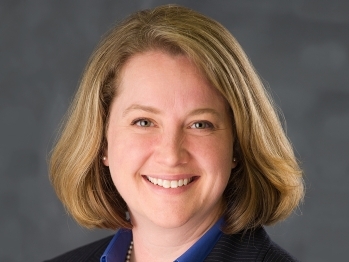
Stephanie Gordon, Ed.D.
Vice President of Professional Development
NASPA
Dr. Stephanie Gordon serves as the vice president for professional development at NASPA - Student Affairs Administrators in Higher Education. She joined the Association in 2003 as the director of educational programs. Since then, the Association has doubled in size to more than 15,500 members. She supervises a professional development team at the largest, most comprehensive student affairs association in the United States.
Prior to joining NASPA, Stephanie served as director of residence life and coordinator of first-year programs at Chatham University, assistant director of residence life, staff development, and training at Colgate University, and assistant director of undergraduate admissions at Simmons College. Her research interests focus on student retention, persistence, and readiness to learn. Stephanie also assists student affairs educators in their daily work on campus. She has co-authored a chapter in Student Services: A Handbook for the Profession and authored a chapter in the current edition of The Handbook of Student Affairs Administration. Stephanie received her B.A. in English literature and political science from Simmons College and earned her Ed.M. in higher education administration at Harvard University Graduate School of Education. She recently completed her Doctorate of higher education management at the University of Pennsylvania Graduate School of Education.
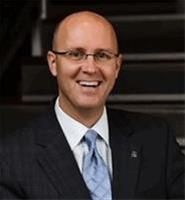
Matthew Brink
Chief Programs & Content Officer
National Association of Colleges and Employers (NACE)
Matthew Brink is chief content and programs officer for the National Association of Colleges and Employers. He oversees professional development services, meetings and events, content, and all research initiatives. An experienced professional in the field, Brink has overseen career services in a variety of institutions, including, most recently, the University of Delaware, and has been active in employer-focused activities.

Ashely Finley
Vice President of Research and Senior Advisor to the President
American Association of Colleges and Universities (AAC&U)
Dr. Ashley Finley is the Vice President of Research and Senior Advisor to the President for the American Association of Colleges and Universities (AAC&U). She was previously the senior director of assessment and research at AAC&U and the national evaluator for the Bringing Theory to Practice Project. Most recently she served as the associate vice president for academic affairs & dean of the Dominican Experience at Dominican University of California, where she implemented a comprehensive framework for student learning and success centered around high-impact practices, including holistic advising and ePortfolios.
Dr. Finley’s research and campus consultations focus on connecting best practices for program implementation, assessment design, and equity with institutional outcomes for student success and strategic planning. A significant component of this work at the campus and national levels has focused on the connection of students’ personal development (such as resilience, belonging, identity, and sense of purpose) with their learning and civic engagement. She has published a number of articles, book chapters, and monographs, including Assessing Underserved Students’ Engagement in High-impact Practices (with co-author Tia McNair), Civic Learning and Teaching; Assessing Underserved Students’ Engagement in High-Impact Practices; and “Well-Being: An Essential Outcome for Higher Education.”
Prior to beginning her national work, Dr. Finley was a faculty member in the department of sociology at Dickinson College. She received a BA from the University of Nebraska-Lincoln and an MA and PhD, both in sociology, from the University of Iowa.

Amy Geist (Moderator)
Director of Strategic Initiatives
NASPA
Amy Geist is director of strategic initiatives at NASPA–Student Affairs Administrators in Higher Education. Her work at NASPA focuses on supporting institutions in their efforts to remove barriers to student success. She began managing communications and marketing for the ASN in early 2023 after leading NASPA’s emergency aid efforts and other projects since 2016. Prior to her work at NASPA, she served in a variety of student affairs and university administration roles for 14 years at the University of Notre Dame and one year at California State University—Long Beach. She earned a master’s degree in Student Affairs Administration in Higher Education from Ball State University and a bachelor’s degree in Sociology from Jacksonville University.
Continuing Education Credits
NASPA has been approved by the Higher Education Consortium for Student Affairs Certification to provide CE credit for Certified Student Affairs Educators (CSAEd). NASPA is solely responsible for all aspects of this program.
Participants who view this session will be eligible for Continuing Education (CE) credits in the Core Student Affairs Educator Certification (CSAEd™) continuing education.
Guidelines for earning CE credit:
1.5 CE is awarded for attending this live session OR watching it on-demand for ONE category of Continuing Education. You can not receive more than 1.5 credit hour total.
No partial credit will be rewarded.
Participants must also complete the feedback survey in the Online Learning Community.
Reach out to virtuallearning@naspa.org for the continuing education certificate for Social Justice and Inclusion.
To receive CSAEd credit, attendees must complete the Feedback Survey in the online event offering the certification. Once the survey is completed, your Certificate of Completion will be available in the event modules. The Certificate of Completion, which will show the event and credit earnings, is available for download and/or print from the event in your Online Learning Community.
